Fostering workforce resilience through practical leadership training
There’s no denying that our industry grapples with persistent staff shortages and high turnover rates. This issue is far from new. The pivotal question remains: once we’ve successfully attracted staff, how do we commit to training and retaining them within the industry?
In response to this question, The Kimberley and Pilbara Cattleman’s Association (KPCA) has been working hard to develop a robust workforce development strategy.
KPCA delivered two leadership workshops in July that provided professional development opportunities for mid-career staff. Held on station, these workshops were a unique blend of stockmanship and leadership training.
Customised training addressing a need
Geared toward mid-career staff and those new to team leadership positions (such as leading hands and head stockmen), these 3-day workshops aimed to build workplace resilience. They equipped emerging leaders with skills to mitigate burnout and provide them with tools to foster a healthy team culture and offer support to their crew.
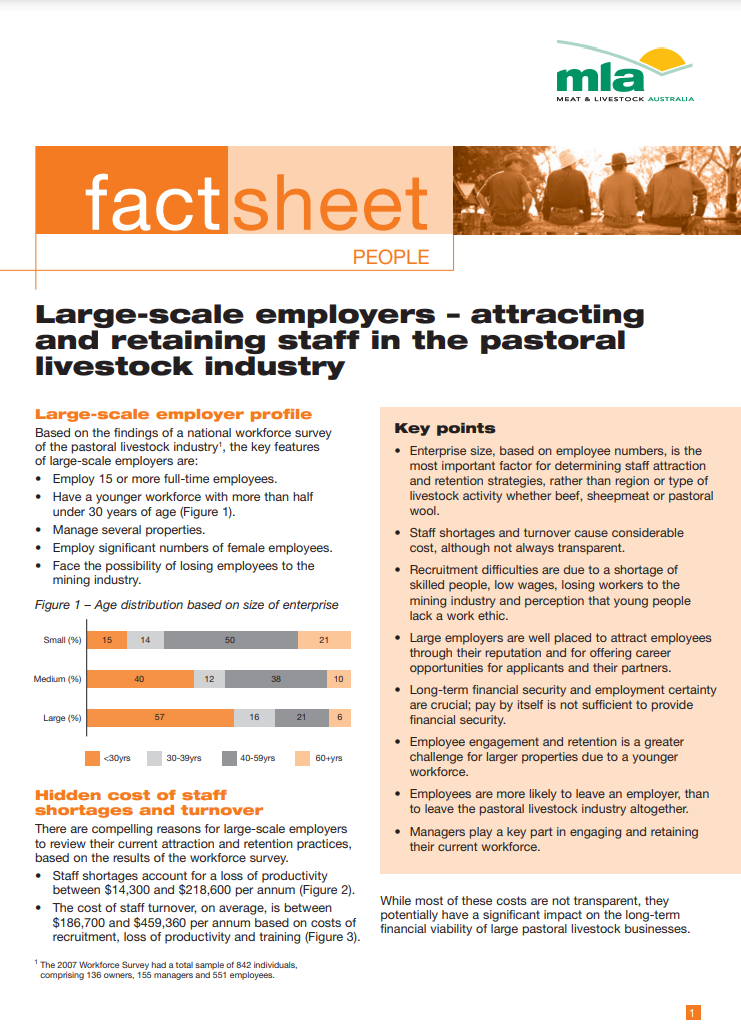 A study conducted by Meat and Livestock Australia (MLA) emphasised one of the leading strategies for retaining staff was to offer ongoing training and career development opportunities. The findings also emphasised the pivotal role managers play in engaging and retaining their current workforce.
A study conducted by Meat and Livestock Australia (MLA) emphasised one of the leading strategies for retaining staff was to offer ongoing training and career development opportunities. The findings also emphasised the pivotal role managers play in engaging and retaining their current workforce.
In light of these findings, KPCA has helped streamline that process by bringing the workshops and facilitators directly to managers.
Napier Station in the West Kimberley and Yarrie Station in the Pilbara played host to on-station training in July, allowing 17 mid-career individuals from these regions actively participated in the workshops.
Facilitators included industry specialists Tammy Kruckow and Steve Burke. Both Tammy and Steve have a solid foundation in the industry and are committed to enhancing the competence and longevity of our younger workforce. Their collaborative workshop aimed to cultivate resilience by arming industry leaders with the necessary skills to guide and motivate their teams—thereby creating an environment that nurtures the retention of skills and knowledge acquired on station.
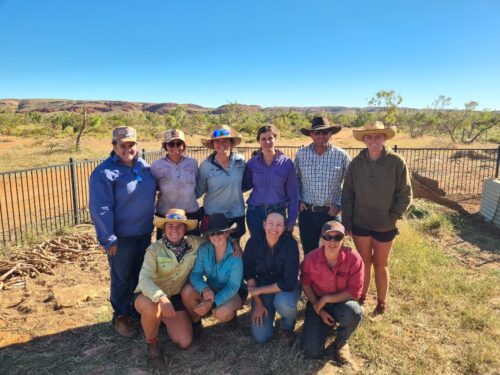
The facilitators
Tammy Kruckow is well-known for her online and in-person coaching. As the recipient of the 2020 Nuffield Scholarship, she knows first-hand the difficulties of staffing workplaces in the north, and is committed to changing the narrative within northern recruitment. Tammy’s mission is to help individuals understand communication and behavioural styles, as well as provide them with tools to help build positive and productive team cultures.
Tammy incorporated a mixture of fun team activities and presentations that was then balanced with Steve’s facilitated session in the cattle yards. Tammy covered topics including leadership mindset, cultivating healthy team cultures, and building confidence. The session culminated with each participant gaining a personalised DISC profile allowing them to further understand their individual personality and leadership styles.
Steve’s interactive session highlighted handling livestock to reduce stress and improve well-being, and effectively manage teams. His session heavily emphasised communication within the yards and the critical role it plays in leadership positions.
Workshop feedback
All participants had very positive feedback, noting the workshop significantly bolstered their confidence in their roles, and many expressed they would recommend the course to others. According to their feedback, participants walked away feeling more equipped to lead their teams. They had better self-awareness, improved confidence, communication skills, and knowledge around identifying and supporting struggling team members, along with tips on how to build and maintain healthy team cultures.
Participants from Myroodah and Blina in the West Kimberley were both greatly inspired after the training and appreciated how the program was deeply rooted in agricultural principles, with every aspect directly tied to the industry and the day-to-day operations on station. They highlighted the valuable communication skills they acquired during the training, which not only enhanced their abilities but also reignited their passion for their roles and the industry.
Jenna, in her second year of employment at Yarrie Station, shared that she approached the training without any specific expectations, but if she had any, they would have been exceeded.
“The course was exceptionally enriching and was thankful for the opportunity to participate at this early stage in my career.” — Jenna, Yarrie Station
She further emphasised the importance of training opportunities such as these for helping to retain young individuals in the workforce.
Key highlights
Addressing a gap
These workshops emerged from a critical recognition that the northern pastoral industry lacked sufficient professional development avenues tailored for the mid-career workforce transitioning into leadership roles.
Dual-purpose approach
The workshops were designed not only to encourage leadership skills, but also help combat high staff turnover by nurturing strong teams and education around preventing burnout.
Tailored delivery
Recognizing the unique nature of the pastoral industry, the workshops were crafted to be accessible to participants with varying backgrounds—catering to those who may not favour traditional classroom-style learning.
Experienced facilitators
Tammy, with 18 years of experience working and managing cattle stations, and Steve Burke, with two decades of expertise in horse and stockmanship as well as leadership training, were invaluable to the success of these workshops.
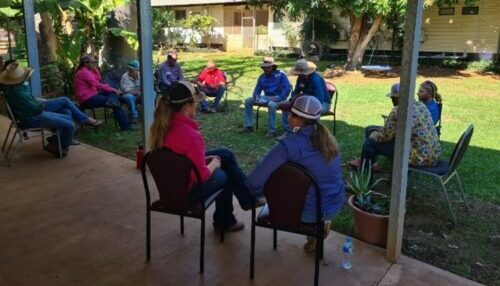
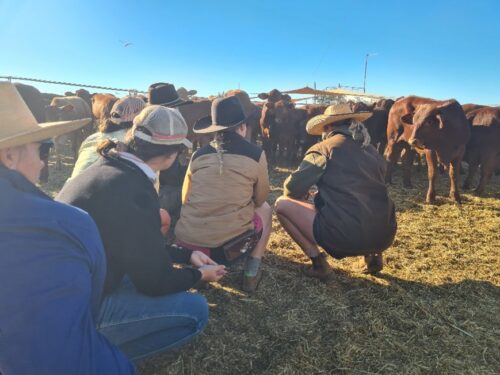
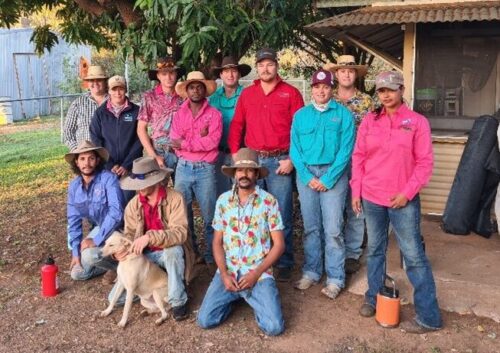
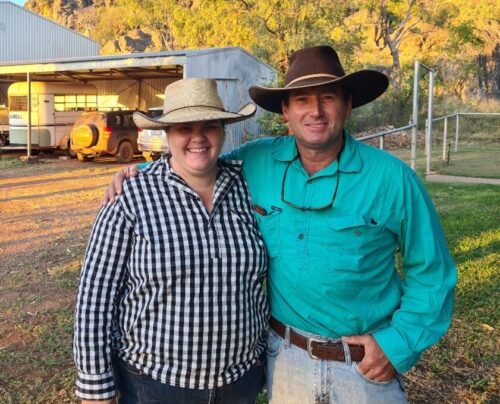
This inaugural round of workshops achieved resounding success and stand as a testament to the industry’s commitment to nurturing its leaders of tomorrow. These workshops were delivered in partnership between KPCA, Western Australia Department of Primary Industries and Regional Development and Regional Development Australia Pilbara—with financial support from the Australian Government’s Future Drought Fund via the Northern Hub.
We wish to thank KPCA for their hard work getting this program off the ground and acknowledge their commitment towards building a resilient and empowered workforce that will shape the future of the northern beef sector.